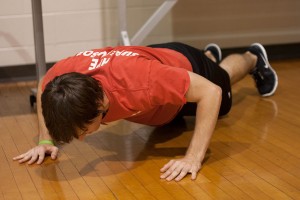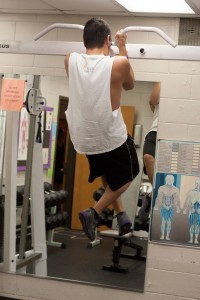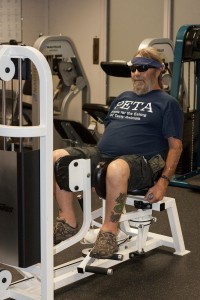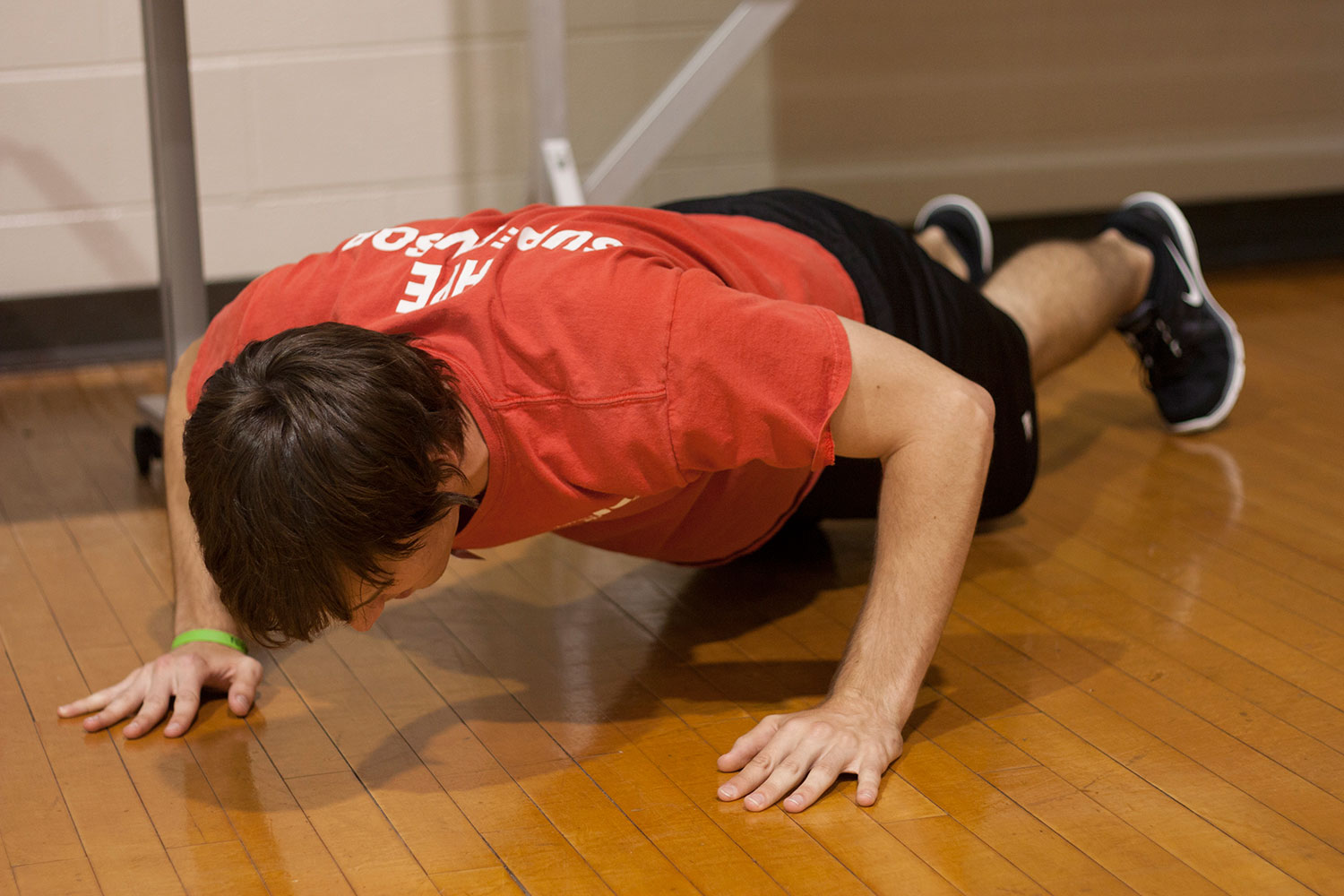
Photo by Carrie Duke/The Collegian
By Claudia Caramantin/reporter
The “freshman 15” does not have to be an issue among college students, a SE Campus HPE assistant professor reports.
“College students do gain weight faster than at any other time in their life, faster than the average American adult,” Melissa Evans said. “For many young people, then it becomes very hard to lose that weight and get back down to a healthier body composition.”
To maintain a healthy lifestyle, Evans suggests 150 minutes a week of cardio-related activities, such as a three-mile brisk walk at a moderate level or 75 minutes of vigorous activity, such as running with at least two days a week of strength training, like yoga.
“Obviously, working at a higher intensity, you don’t have to spend as much time doing it, so that can shorten your time,” she said.
Evans understands that students sometimes have limited time to include working out in their schedule because of school hours, workload and family, but she suggests ways to mix physical activity into a daily routine.

Photo by Carrie Duke/The Collegian
“Combine activities that incorporate both some type of strength training with aerobic, whether doing intervals where [students] are doing some cardio,” she said. “And then they take a break and do something as simple as some pushups or lunges, and then they go back to cardio.”
Evans suggests students walk up and down the stairs between classes, take a 10-minute power walk and park their cars a little farther away from campus to help add activity to their daily routine.
“Even more important for students is the connection between physical activity and brain health,” she said. “The more we move, the better our brain functions because it increases blood flow to our brain and also helps with the neurotransmitters within our brain.”
Students need to invest in their health because it is their most valuable asset, Evans said.
“Do you have time to be sick? That’s usually my first question,” she said. “If you’re not investing in your own health, how are you going to then invest in anything else?”
If people don’t take care of their health, they can’t learn, take care of their family or hold down a job effectively, Evans said.
“That’s one of the things many employers are really beginning to pay attention to are the health of their potential new hires because it all comes back to dollars and cents,” she said. “Unhealthy people cost more money, and employers are less willing to hire unhealthy people.”
Also investing in their health will help them not only physically, but mentally and emotionally as well, she said.
“Exercise is a great stress reliever,” she said. “It will also help their pocketbook because they will be healthier and healthier [which] results in less money being spent going to the doctor and long-term health problems.”
Evans said students can use the facilities TCC provides such as the swimming pool, cardio room, weight room and gym. She recommends taking physical activity classes as electives or participating in intramural sports.
“We have many, many intramural sports that students can join and participate in for free,” she said. “Some are individual, some are team sports.”
Evans stresses the importance of having good eating habits and not relying on fast food all the time.

Photo by Carrie Duke/The Collegian
“Fast food is low in nutritional value and very high in calories,” she said. “[Students] will have more energy and feel better if they’re not eating fast food all the time.”
Evans explains that the ideal dinner plate consists of one-half of the plate being vegetables and fruits, a quarter being any type of lean meat and the remaining quarter should be whole grains.
“Again, not to say we can’t ever have hot wings and pizza but not making that the norm, letting that be the exception and the treat every once in a while,” she said.
Michael Dillman, a sophomore studying mechanical engineering, said he has made it a habit not to frequent restaurants.
“I [would] rather spend money eating a home-cooked meal at home than eat out,” he said. “I think of fast food as an emergency-only plan.”
Dezra Hawkins, a sophomore game development and programming major, said he avoided weight gain by focusing on school and staying away from negative influences.
“I stay healthy by doing a few morning workouts and eating healthy to keep me energized throughout the day,” he said.
Jose Rios, a criminal justice sophomore, said he stressed a lot during his first semester but avoided gaining weight by eating at Subway between classes and working out at 24 Hour Fitness in his free time.
“I did find myself always going to [Subway] in a hurry, almost swallowing the sandwich and then going to the library to continue homework or study,” he said. “I found out as time goes on, you learn how to manage your time more efficiently.”

